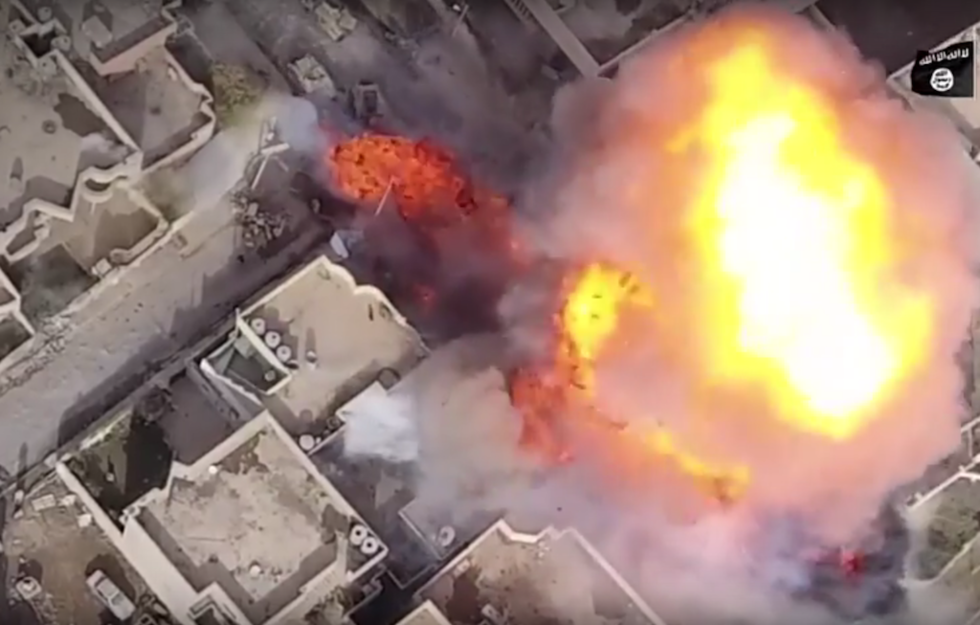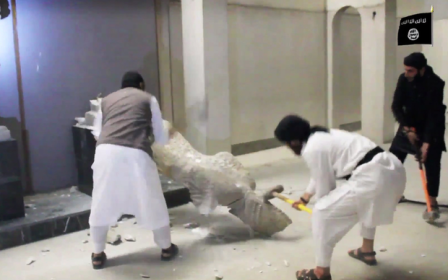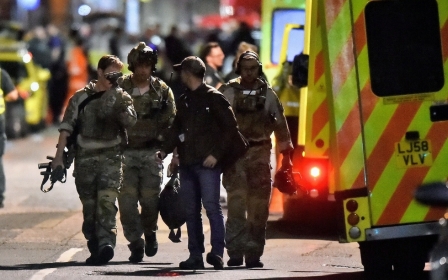YouTube admits 'wrong call' over deletion of Syrian war crime videos

YouTube has apologised after "mistakenly" removing videos portraying war crimes and other facets of the Syrian civil war by activists and opposition groups.
Last week, several organisations - including Middle East Eye, open source investigations site Bellingcat, and monitoring group Airwars - said that a number of their videos had been removed by YouTube for violating the platform's "community guidelines."
Furthermore, some media outlets found their entire YouTube accounts suspended, including Bellingcat founder Eliot Higgins and Syrian opposition media channel Orient News.
With the massive volume of videos on our site, sometimes we make the wrong call
- YouTube
The removals began days after Google, which owns YouTube, trumpeted the arrival of an artificial intelligence program that it said could spot and flag "extremist" videos without human involvement.
But since then vast tracts of footage, including evidence used in the Chelsea Manning court case and videos documenting the destruction of ancient artifacts by Islamic State, have been flagged as "extremist" and deleted from its archives.
However, in a statement released on Wednesday, YouTube conceded it had made the "wrong call" on several videos, and said they had been reinstated.
"We recently announced technological improvements to the tools our reviewers use in video takedowns and continue to improve these," they said, according to the Times.
"With the massive volume of videos on our site, sometimes we make the wrong call. When it’s brought to our attention that a video or channel has been removed mistakenly, we act quickly to reinstate it.”
YouTube told MEE in an email last week that the video "Drone footage by Islamic State shows suicide car attacks on Iraqi forces inside Mosul" was removed and that YouTube had "assigned a community guidelines strike, or temporary penalty" to MEE's account.
This video has since been restored.
The same occurred in the case of "Video appears to show Egyptian soldiers carrying out extra-judicial killings". MEE lodged an appeal with YouTube and received this response:
"After further review of the content, we've determined that your video does violate our Community Guidelines and have upheld our original decision. We appreciate your understanding."
Another video, documenting the destruction of Nimrud by IS, which is widely available across the internet, was removed from an MEE staff account, and all appeals were rejected.
Alexa O’Brien, an American journalist who covered the US prosecution of Wikileaks whistleblower Chelsea Manning, said video used as evidence in the 2013 trial had also been removed for violating YouTube's guidelines.
O'Brien tweeted that, following "reconciliation" with YouTube, another video featuring al-Qaeda was also removed despite also being used as evidence in the trial.
She said that she had received two community strikes and risked having her account deleted.
In response to the deletions, YouTube told MEE by phone that while it could not comment on individual cases, it was not aware that "any particular type of content was being flagged over another".
"Previously we used to rely on humans to flag content, now we're using machine learning to flag content which goes through to a team of trained policy specialists all around the world which will then make decisions," a spokeswoman said.
"So it’s not that machines are striking videos, it’s that we are using machine learning to flag the content which then goes through to humans."
Middle East Eye propose une couverture et une analyse indépendantes et incomparables du Moyen-Orient, de l’Afrique du Nord et d’autres régions du monde. Pour en savoir plus sur la reprise de ce contenu et les frais qui s’appliquent, veuillez remplir ce formulaire [en anglais]. Pour en savoir plus sur MEE, cliquez ici [en anglais].




